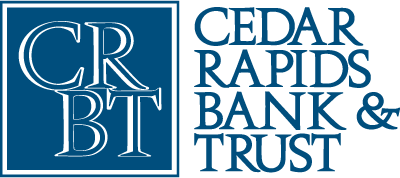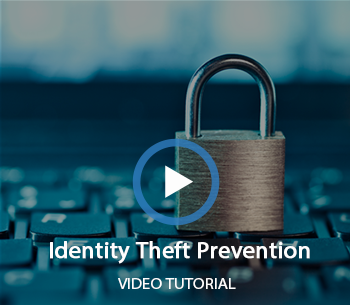Protect Your Accounts
Cedar Rapids Bank & Trust would like to remind you that we will never, under any circumstances, ask you to verify any personal or account information over the internet or via email. There are several email scams, particularly in the financial services industry, where websites appear to be legitimate bank websites that may expose you to malicious computer code or lead to a compromise of your personal information.
A good reminder is to always err on the side of caution when opening an unsolicited email. We are a relationship-based financial institution and we take pride in our personal approach with clients. With that in mind, please be cautious if ever asked to reveal or confirm personal information via online or if asked to click through to a website that you believe might not be associated with Cedar Rapids Bank & Trust.
If you ever have any questions regarding an email that you receive, please contact us at 319.862.2728. We will happily verify if it is a legitimate email from Cedar Rapids Bank & Trust.
Fraud Prevention Tips
Never provide your personal information in response to an unsolicited request, whether it is over the phone or on the Internet. Emails and Internet pages created by phishers may look exactly like the real thing. They may even have a fake padlock icon that ordinarily is used to denote a secure site. If you did not initiate the communication, do not provide any information.
If you are unsure whether a contact is legitimate, contact the financial institution. You can find phone numbers and websites on the monthly statements you receive from your financial institution, or you can look up the company in a phone book or on the Internet. The key is that you should be the one to initiate the contact, using information that you have verified yourself.
Never provide your account information and/or password over the phone or in response to an unsolicited Internet request. A financial institution would never ask you to verify your account information or confirm a password online. Thieves armed with this information and your account number can help themselves to your money.
Review account statements regularly to ensure all transactions are correct. If your account statement is late in arriving or does not arrive, call your financial institution to find out why. If your financial institution offers electronic account access, check your account activity online regularly to catch suspicious activity.
If You Become a Victim of Identity Theft
If you do become a victim of identity theft, contact Cedar Rapids Bank & Trust immediately.
In addition, complete following four steps suggested by the Federal Trade Commission as soon as possible, and keep a record with the details of your conversations and copies of all correspondence. For more detailed information, visit the Federal Trade Commission's website by clicking here.
Place a fraud alert on your credit reports, and review your credit reports.
- TransUnion: 1-800-680-7289; www.transunion.com; Fraud Victim Assistance Division, P.O. Box 6790, Fullerton, CA 92834-6790
- Equifax: 1-800-525-6285; www.equifax.com; P.O. Box 740241, Atlanta, GA 30374-0241
- Experian: 1-888-EXPERIAN (397-3742); www.experian.com; P.O. Box 9554, Allen, TX 75013
Close the accounts that you know, or believe, have been tampered with or opened fraudulently.
File a complaint with the Federal Trade Commission. You should also file a complaint with the Federal Trade Commission by contacting the FTC's Identity Theft Hotline. You can reach them by telephone toll-free at 1.877.IDTHEFT (438.4338); or online at the Federal Trade Commission Identity Theft Website.
File a report with your local police or the police in the community where the identity theft took place.
Fraud Prevention Resources:
- Fraud Prevention Recommendations From Our Treasury Management Team
- Secure Email Message Center
- CRBT Blocked Countries
- Federal Trade Commission ID Theft Site
- US - CERT Cyber Security Tips

